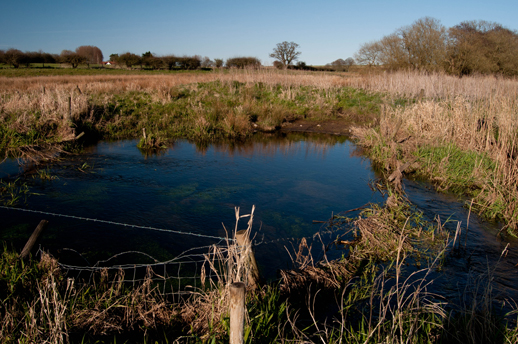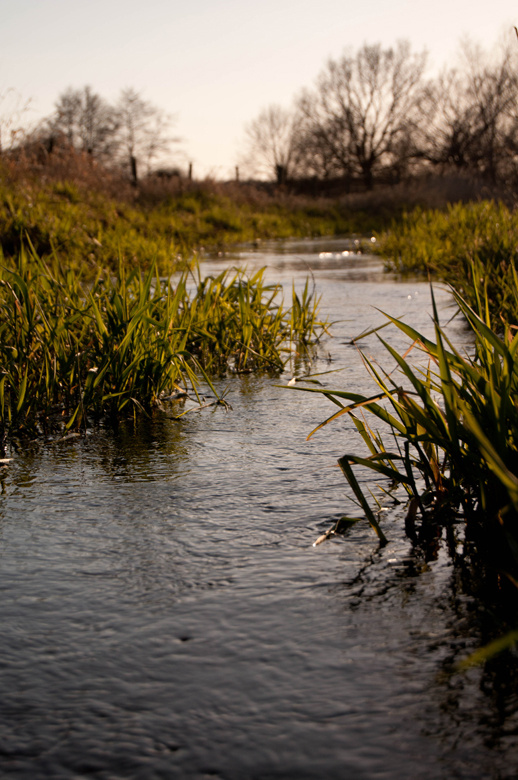The River Wensum Restoration Strategy is a joint project developed by Natural England and the Environment Agency. Caught by the River contributor Danny Adcock is a member of a syndicate that fish on and care for the upper reaches of the Wensum and he’s started a blog to document the progress of the restoration. Here, by Danny’s kind permission, is his first post:
This is the confluence of the rivers Tat and Wensum. It looks a bit like I imagine a chalk stream flowing through a shell hole in the Somme might: there’s enough barbed wire and mud to repel an infantry attack.
The banks have been trodden down by cattle and the river is probably three times as wide as it should be. When I tried to wade I sank up to my knees in silt and was in serious danger of being found starved to death here next Spring. Our chalk rivers have suffered from years of neglect, and even abuse. What is it about us humans that has made us so arrogant we no longer care about the things most important to us as a society? The streams and rivers that rise through the chalk have provided us not only with water but food for hundreds of years; chalk stream water was diverted to create better grazing that led to the creation of the water meadows that have gone hand in hand with our chalk streams since the 17th century.
We don’t have a choice as to whether we stop eroding and start improving, we have a responsibility to. The consequences of doing nothing will be much greater than not having any decent trout fishing, but potentially disastrous for society as a whole. Even those people that have never seen a chalk stream, let alone know what one is, could be affected by their loss. Chalk streams don’t exist in isolation; they’re the veins and arteries that engorge our countryside; they’re an essential part of our natural biodiversity, and without them the world be a sadder place, and a worrying one.
We’re causing an ever increasing number of environmental pressures. This week there’s a vote in Europe which will hopefully see the use of the neonicotinoid group of pesticides banned. It seems strange – or does it? – that politicians claim it is vitally important to look after our bees, yet at the same time the British government will not only abstain from the vote, but have been actively lobbying to prevent a ban. Bees, chalk streams, rain forests, tigers, fish stocks; we’re being swept along on a current of greed and apathy, and if we don’t slow down soon we’re going to be wrecked on the rapids.
Just upstream of where the Tat enters the Wensum the river seems in pretty good nick: a silt-free fast moving flow over gravel channels braided with reed. The banks may be a bit steep in places meaning the river instead of flowing through the landscape, flows slightly apart from it, but it seems healthy for all that, and, in the evening light, I watched a trout rising.

